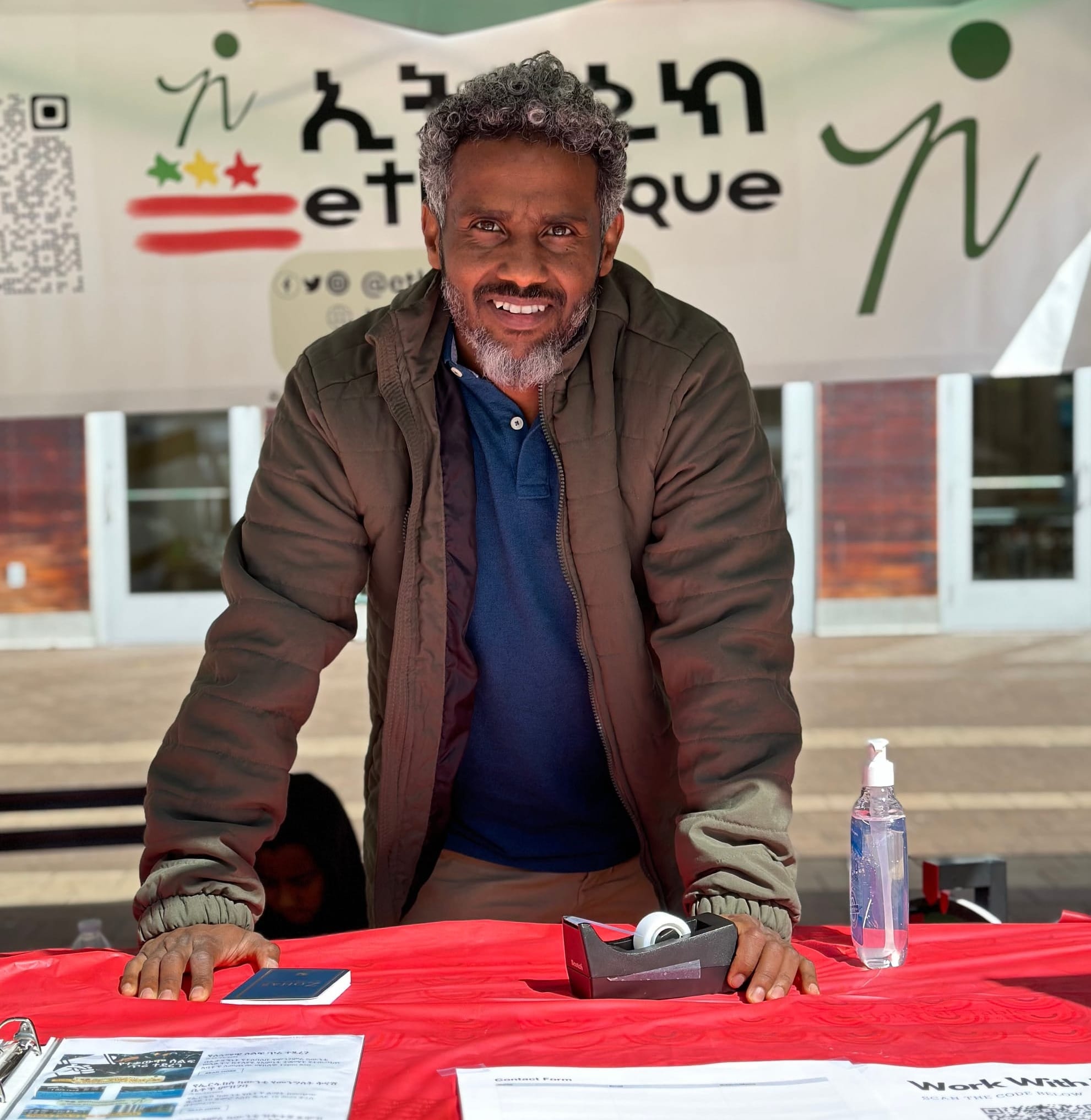
Tiny News Collective exists to support early-stage news entrepreneurs all across the United States who are raising their hands to provide community-focused news and information and places for community connection. We are who we are because of the founders we serve. And we want the journalism field, the civic information space and beyond to know about the creative, impactful work of these founders. To that end, we are thrilled to highlight their stories through an ongoing series of profiles and features.
For our latest feature, we caught up with Henok Mengistu, who founded Ethiopique in 2021 to serve the Amharic-speaking Ethiopian and Eritrean community in the Washington, D.C., area. The publication aims to bridge the information gap for the immigrant community by providing timely information, news and other opportunities in the language and the context that best serves the community. Henok talked about how a tornado warning led him to make Ethiopique a news hub. He also talked about a fruitful collaboration with fellow TNC member The 51st and El Tiempo Latino on an immigrant resource guide. “[Our] mission hasn’t changed: making sure our community is informed, respected and never left behind,” he said.
It really all started during the pandemic. I was working as a service coordinator in an affordable housing building in Washington, D.C. The building had about 250 households, and it was a mix of roughly half African American and half immigrants, mostly from Ethiopia and Eritrea. What I saw was that both communities faced serious barriers, such as access to rent help, food programs or school resources, but the immigrant families were struggling even more. And the big reason was language.
If you didn’t speak English well, you were basically shut out of the system. Some had to wait long hours just to get a translator. Others tried using Google Translate, but that often made things worse.
So I started knocking on doors, apartment by apartment, to explain things in Amharic: how to get help with rent, pay utility bills, get food or sign up for the Internet for their kids. That’s how trust started to build. But it also showed me something deeper: This wasn’t just a temporary problem. Our community didn’t have a reliable way to access information at all.
That’s how Ethiopique began. It started on Facebook, because that’s where most Ethiopians and Eritreans are active. I shared basic information in Amharic, just things people needed to know to stay safe, fed and housed. The response was overwhelming.
What really pushed me to expand it into a full news platform was a tornado warning. I remember sitting in my office and seeing some residents leaving the building. I asked where they were going, and they said they were heading to church before it rained. I asked if they’d heard about the tornado warning, and they hadn’t. Some didn’t even know what a tornado was, because we don’t grow up with tornados in East Africa. That moment hit hard. People were walking straight into danger because they simply didn’t have access to information.
That’s when Ethiopique shifted from just a resource hub to a full local news platform. Since then, we’ve grown to cover elections, housing issues, public health alerts and more. But the mission hasn’t changed: making sure our community is informed, respected and never left behind.
Yes, there have been several moments when I felt that Ethiopique made a real difference in our community. One that really stands out was when we shared information about a local program in Montgomery County, Md., that was working to close the digital divide. The program had limited outreach in other languages, so when we explained it in Amharic and helped people understand how to apply, we heard from hundreds of readers who were able to benefit from it. For many of them, it opened up access to things they could not get on their own.
Another moment that meant a lot was when we created a guide for federal employees who had been laid off or furloughed. We collected resources from D.C., Maryland and Virginia, and shared them in simple, clear language. Many people told us that it helped them figure out what to do next during a stressful and uncertain time.
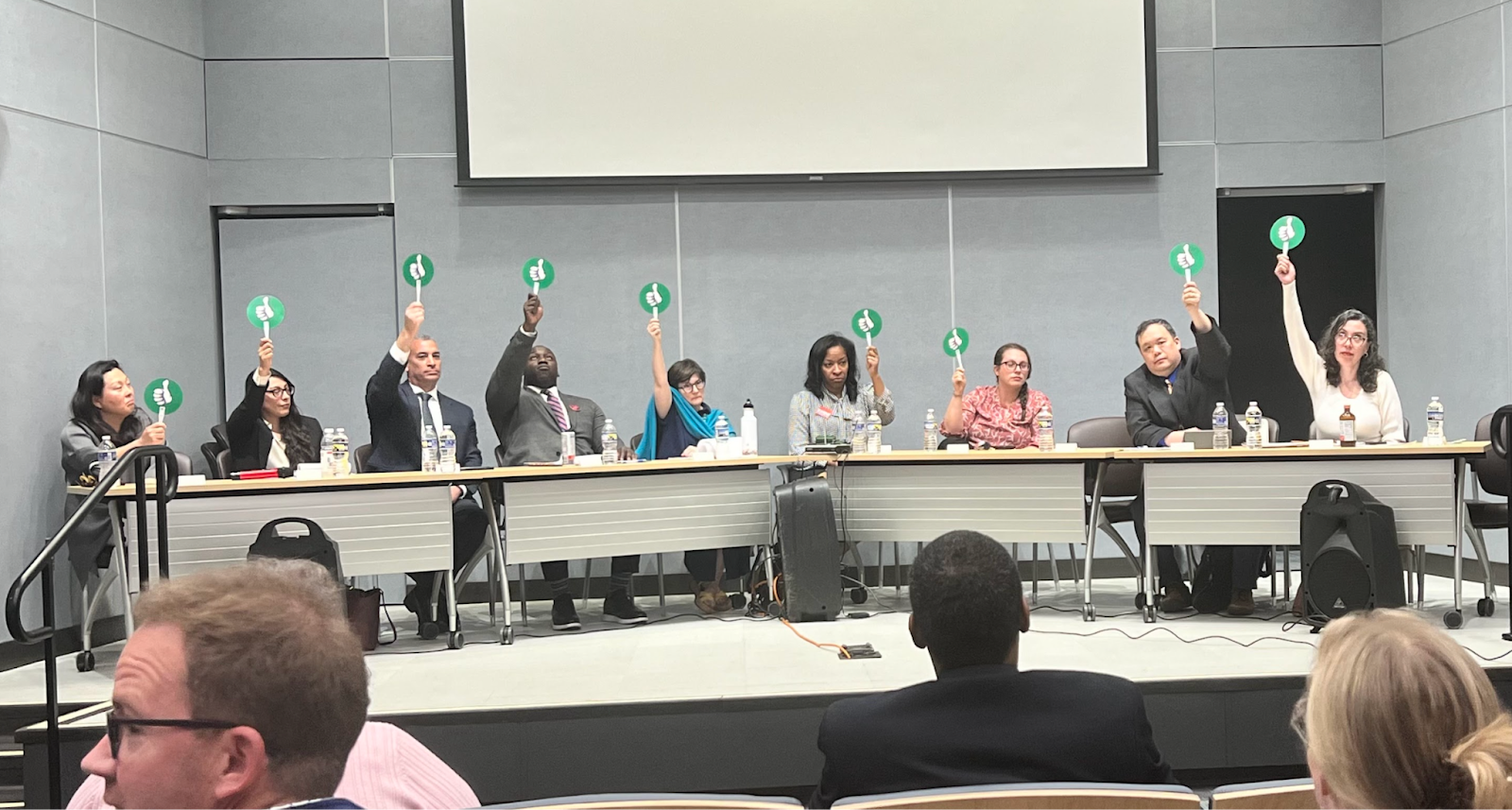
We also worked on an immigration piece after surveying members of our community who were still going through the legal process. We partnered with The 51st and El Tiempo Latino to publish an article with helpful resources, and then hosted a live webinar in Amharic. We invited two lawyers who spoke the language, so our readers could ask questions directly and get answers they understood. A few people later told us that the information they received helped them make progress in their immigration cases.
We hear stories like this often. Readers tell us that something we shared made a real difference in their lives. That is what keeps us going. It is the reason Ethiopique exists.
Right now, our business model is still taking shape. We earn some revenue through advertising, but it is inconsistent and not enough to fully support our work. We also receive a small but steady income from Meta, which helps cover basic costs like the rent for our virtual office. On top of that, we were fortunate to receive a grant from Press Forward. That support helped us improve our reporting, expand our reach and build some capacity. But Ethiopique is still not financially self-sustaining, so I continue to support it with income from my day job.
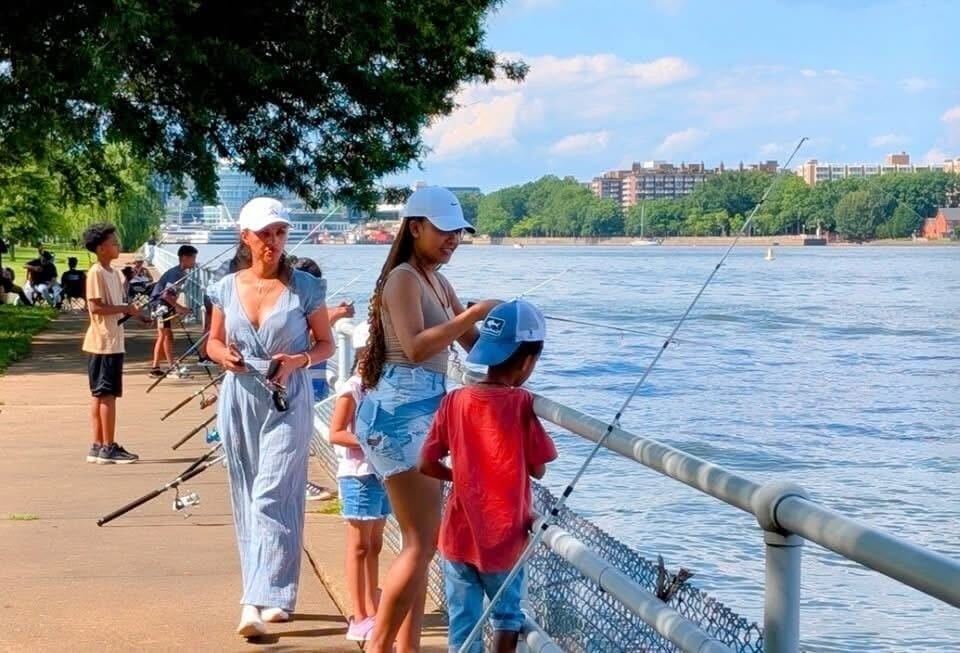
We are testing different approaches to build a more stable and community-based model. One of those ideas is “Fishing with Ethiopique.” It started as something personal. I enjoy fishing, but it has become a meaningful way to gather with our readers, build trust and hear what matters most to them. We plan to rotate the event to different locations like Baltimore; Columbia, Md.; Annapolis, Md.; Woodbridge, Va.; and Richmond, Va., to meet more of our readers where they are.
We also hope to bring in sponsors from local businesses to support the event. If the need is there, we may grow it into a mutual aid group, but for now, it is helping us stay connected in real and lasting ways.
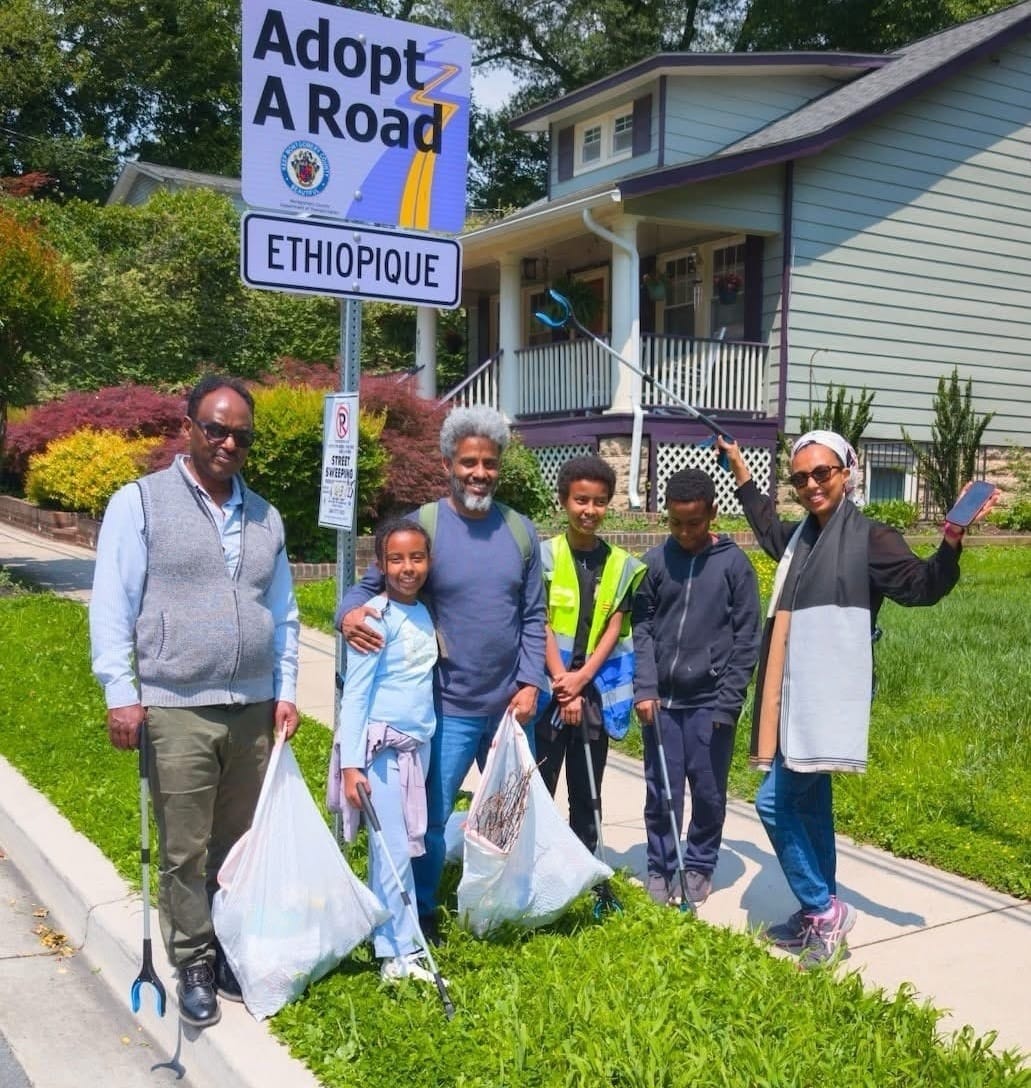
We are also investing in small but visible acts of service. One recent step was adopting a one-mile stretch of road in Silver Spring, Md., where many Ethiopian-owned businesses are located. Our goal is to raise support through sponsorships from these businesses while also giving our community a way to contribute to the broader Silver Spring area.
As part of our long-term vision, we are also building relationships with young people. Most of the youth in our community do not read or understand Amharic well. That creates a real gap, and we want to close it by reaching them early. Through events like “Fishing with Ethiopique” and other community gatherings, we are making sure they know we exist and feel welcomed. As we continue to grow, we plan to include more English language content so they can follow the work we do, feel represented and stay informed. Our hope is that some of these young people will eventually grow into contributors, supporters or team members as Ethiopique evolves.
We are also exploring ways for our readers to support the work directly. Even small monthly donations can help us hire more contributors, expand our coverage and remain independent. We are also thinking about partnerships with schools, local government offices and organizations that need trusted outreach to Amharic speakers. Ethiopique is in a strong position to be that bridge.
So while the business model is still developing, the foundation is clear. It is built on trust, community presence, and a long-term mission to grow with the people we serve across generations and languages.
We launched Muchal to make news more engaging and accessible for Amharic speakers, especially those who prefer visual content or are less comfortable with written language. The idea was to create an animated character who could deliver local news in spoken Amharic, in a way that felt familiar and welcoming.
In the beginning, the feedback was positive. People appreciated the creativity and the attempt to try something new. But over time, we ran into financial limitations. Muchal required tools, software and production support that we could not afford to keep up with. Additionally, since its launch, we have seen major changes in technology. New AI tools now offer easier and more cost-effective ways to deliver similar results. At the same time, interest in Muchal slowed down. So we made the decision to focus our limited time and resources on work that creates deeper, real-world impact.
That is why we are putting more energy into direct community engagement—through events like “Fishing with Ethiopique” and our street cleaning effort in Silver Spring. These activities allow us to build face-to-face relationships, hear from our readers and stay rooted in the needs of the community.
We have also made a conscious decision to reach young people in a more personal way. “Fishing with Ethiopique” has become a space where kids and families can connect with us early, in a setting that feels relaxed and welcoming. When kids attend these events and see our presence, they grow up knowing and trusting Ethiopique as part of their world.
Muchal was a meaningful experiment, and we are proud of what it stood for. But right now, our focus is on building trust the old-fashioned way: through real conversations, shared spaces and showing up for our community.
Our vision for Ethiopique is to grow into a trusted full-service news and information platform for Ethiopian and Eritrean immigrants in the D.C., Maryland and Virginia region. We want to be the first place people turn to when they need to understand what is happening around them, whether it is about housing, schools, elections, public safety or immigration. Once we have made sure that this experiment is working, impactful and financially sustainable, we plan to replicate it in other areas of the United States where we have community members from Ethiopia and Eritrea.
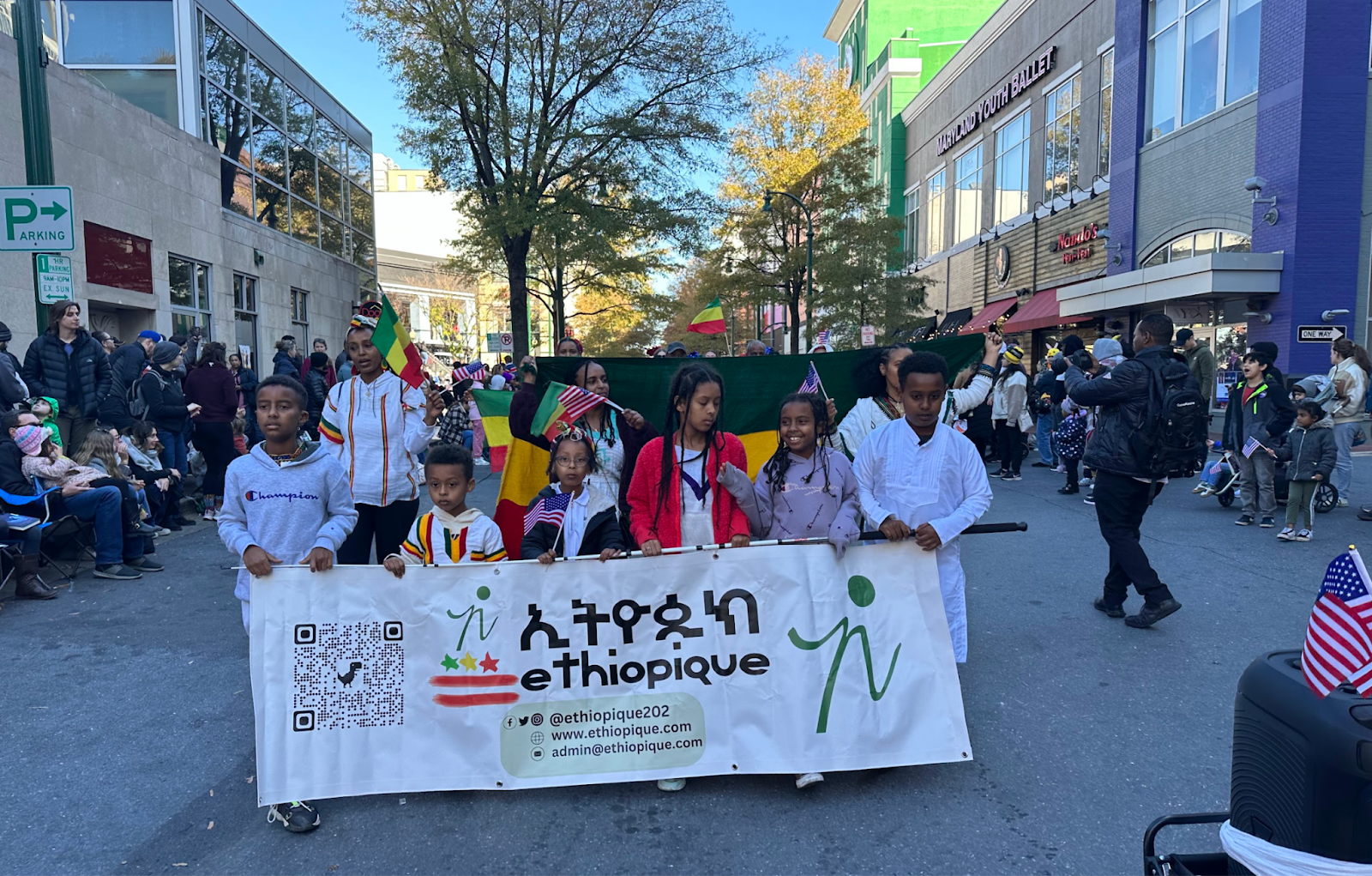
We also see Ethiopique becoming more than just a news outlet. We are building real relationships through events like “Fishing with Ethiopique,” street cleanups and other in-person gatherings that bring people together. These efforts help us stay close to our readers and understand their needs in a deeper way.
We are also working with other hustlers in the community, people who are trying to make a difference in their own ways. Whether they are creating local services, organizing events or simply trying to help others, we want to support their work by giving them space on our platform to amplify their voices and reach more people. If someone is doing something good for the community, we want to help it grow.
At the same time, we want to see our community more active in civic life. We want our readers to vote, attend town halls, ask questions and hold public officials accountable. Our goal is to help people understand how local decisions are made and how their voices can shape what happens in their neighborhoods.
The vision is simple. We want Ethiopique to stay close to the people it serves and grow with them. We want to be useful, trusted and rooted in the daily lives of our community.
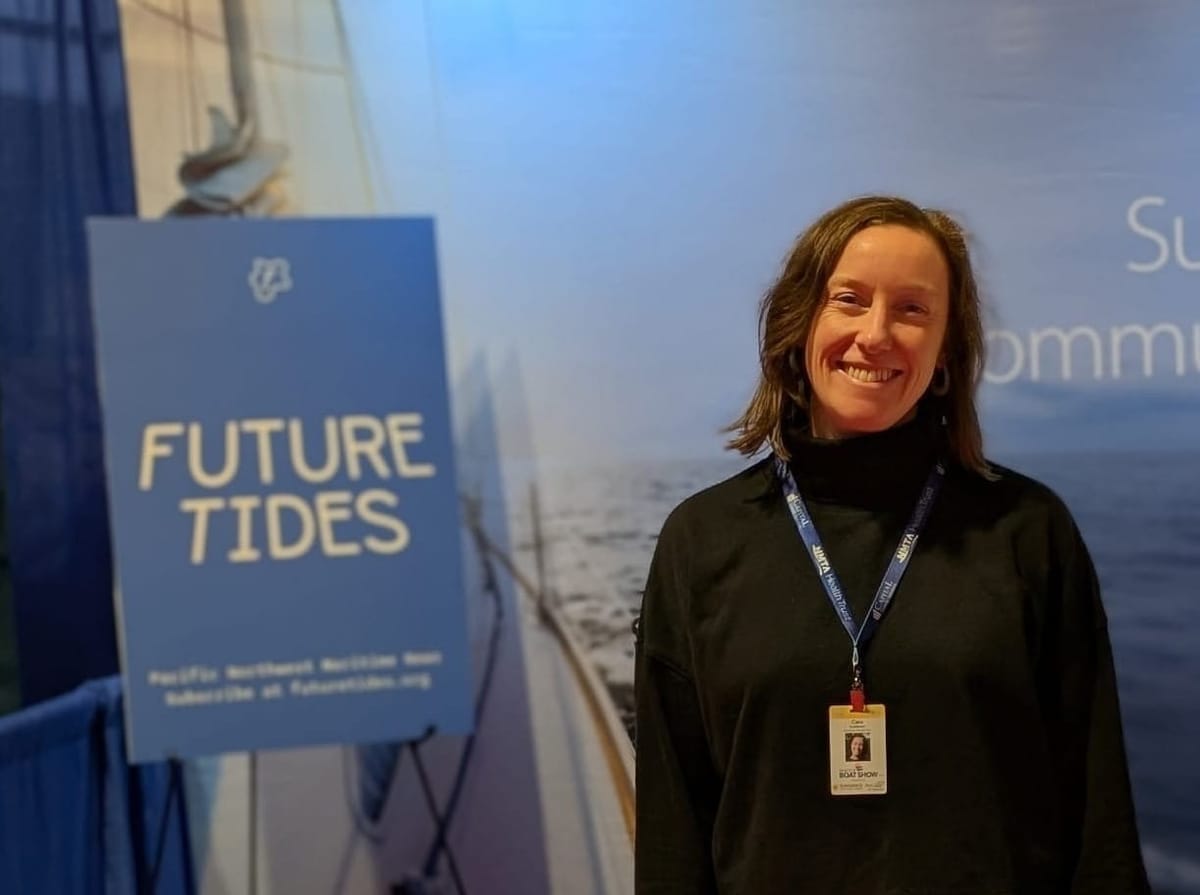
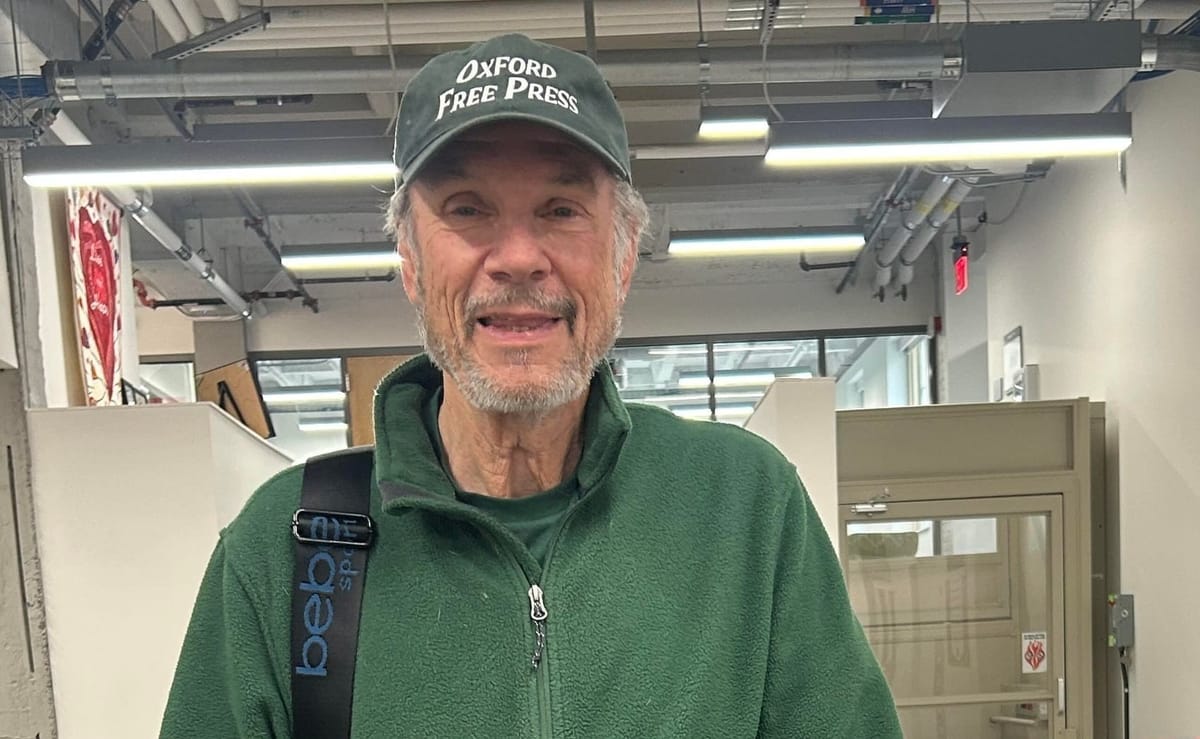
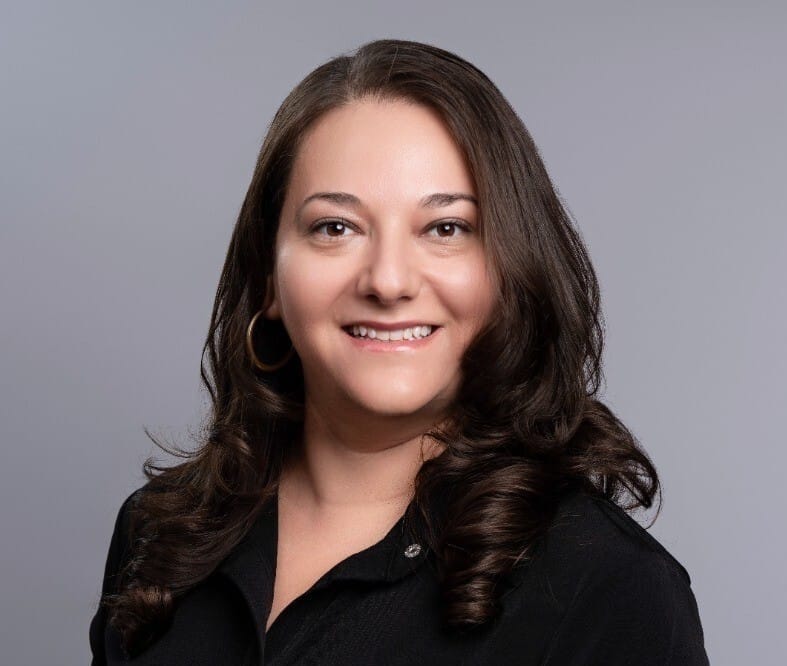
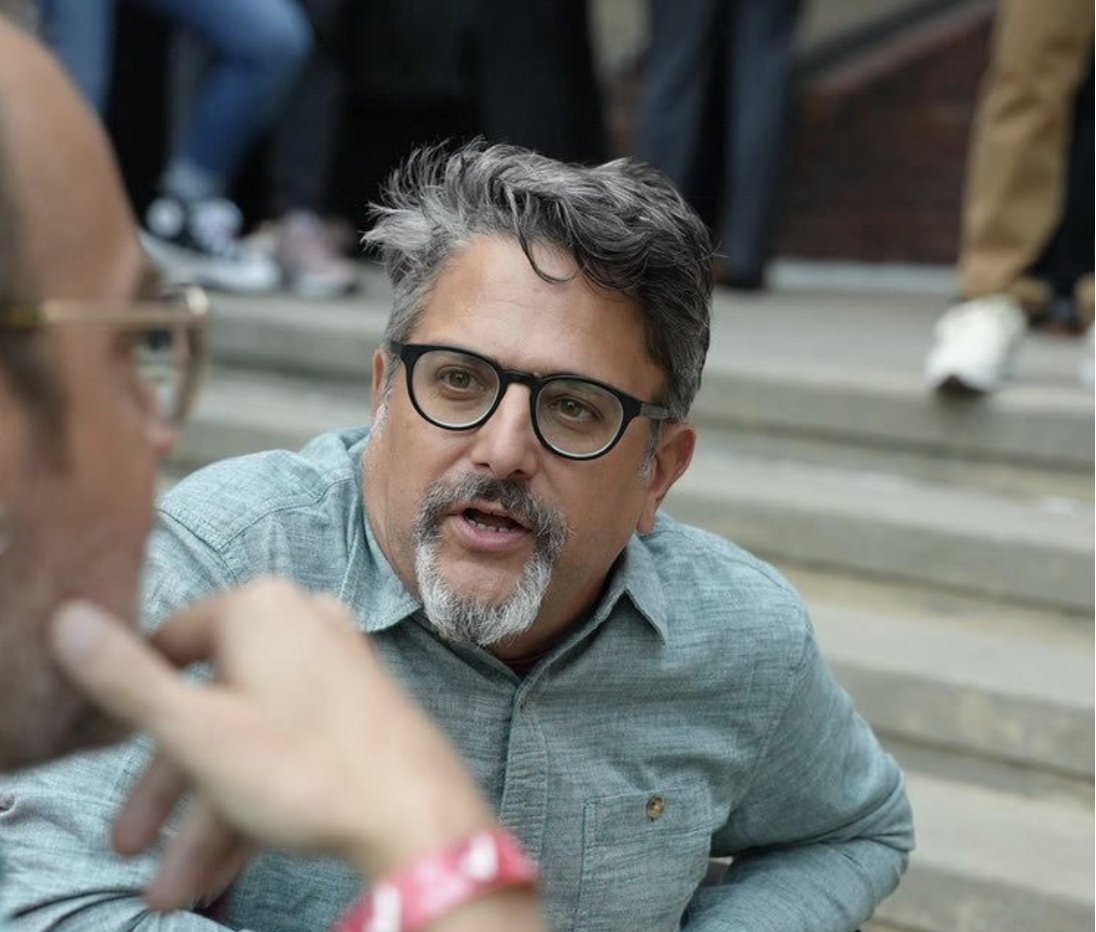
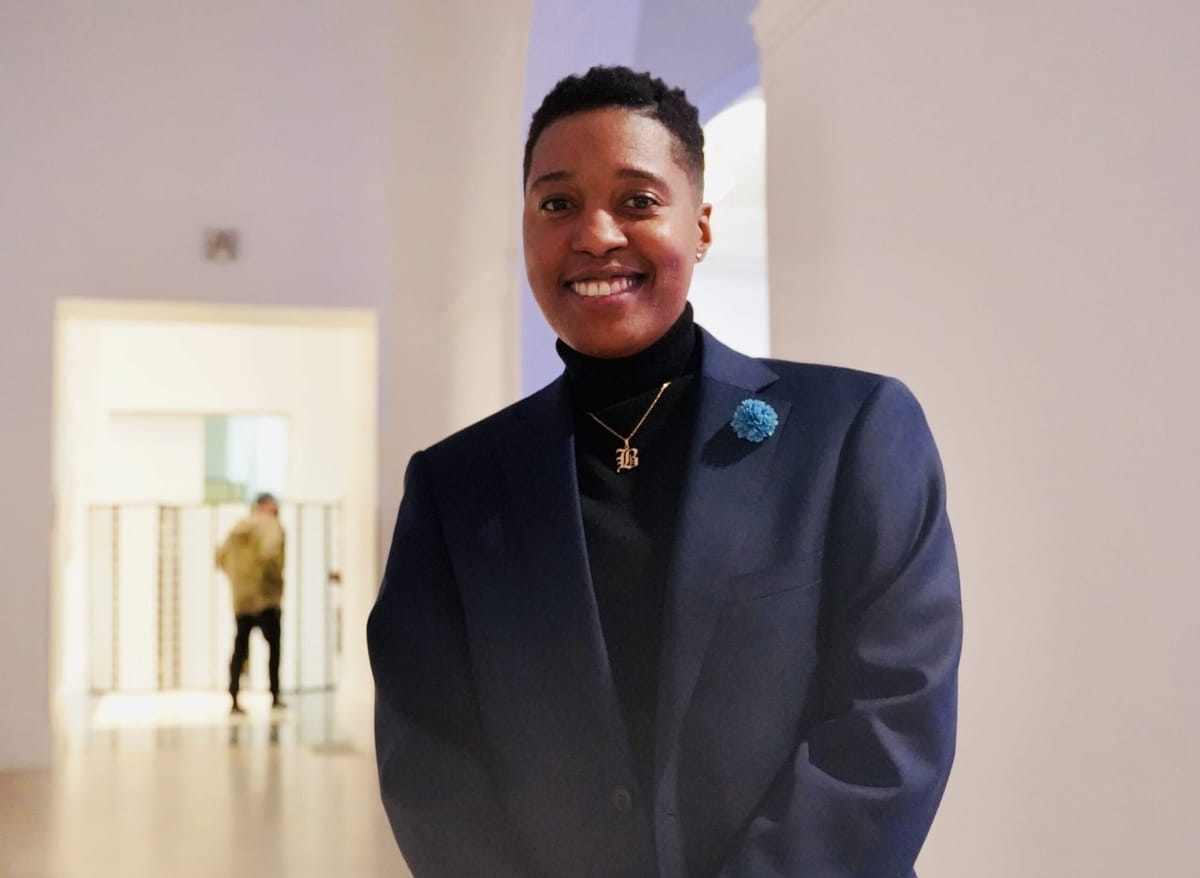
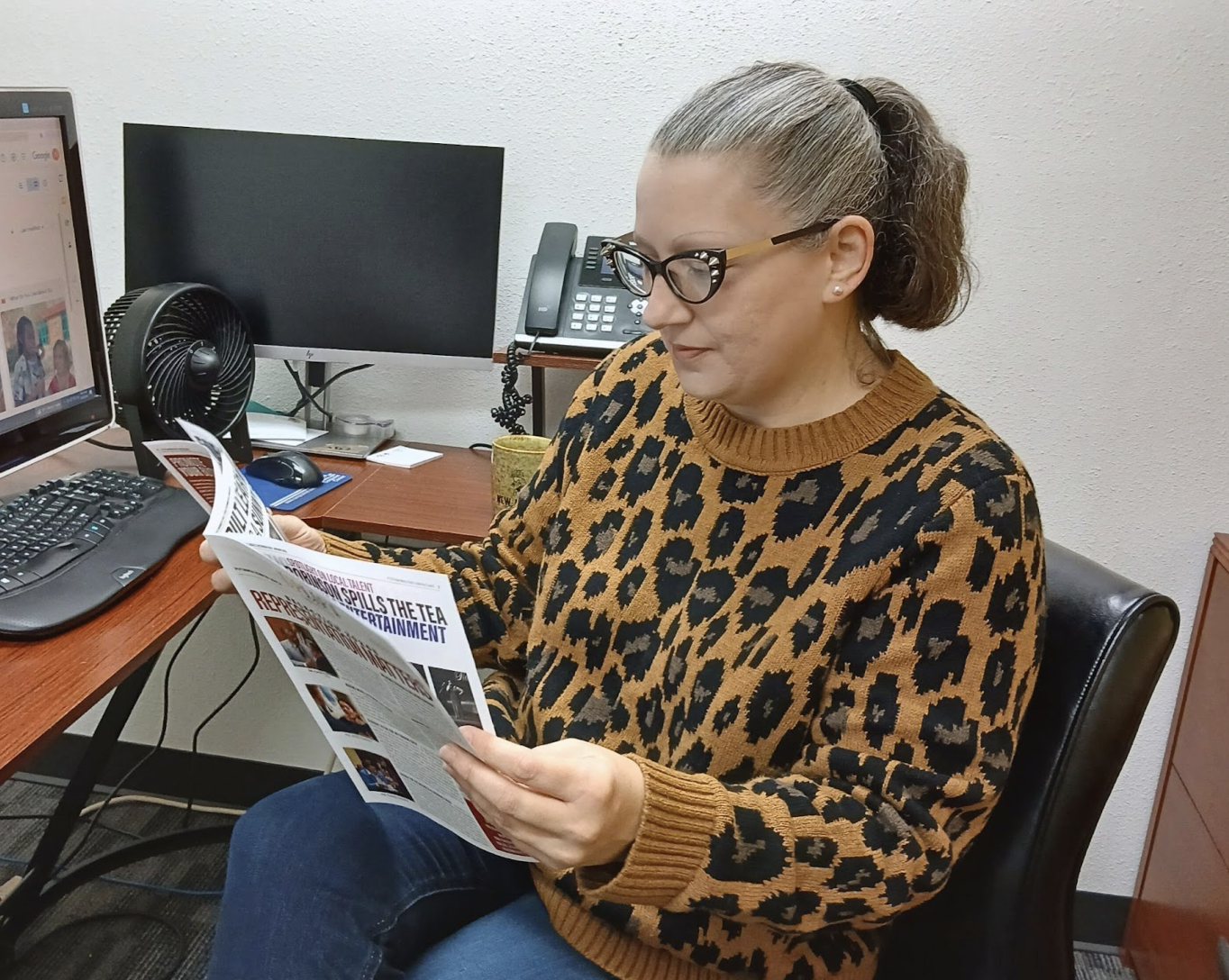
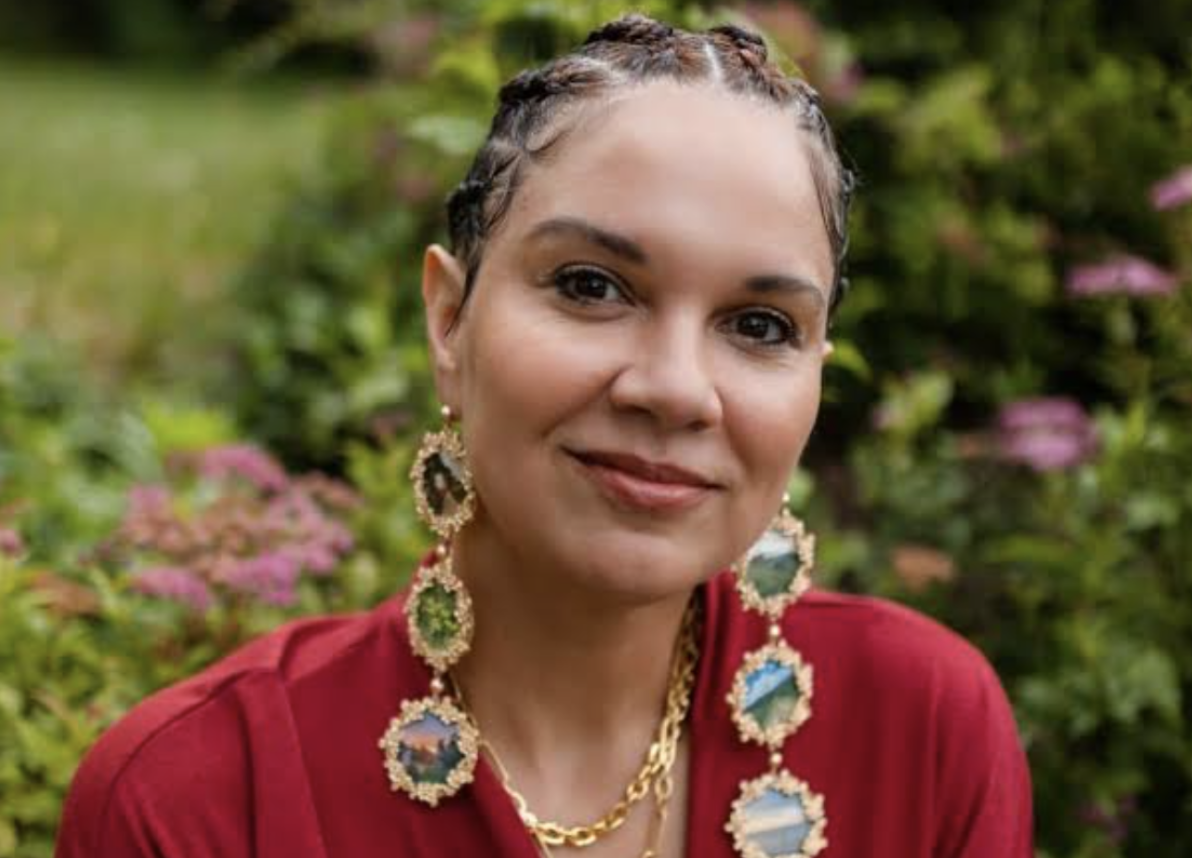
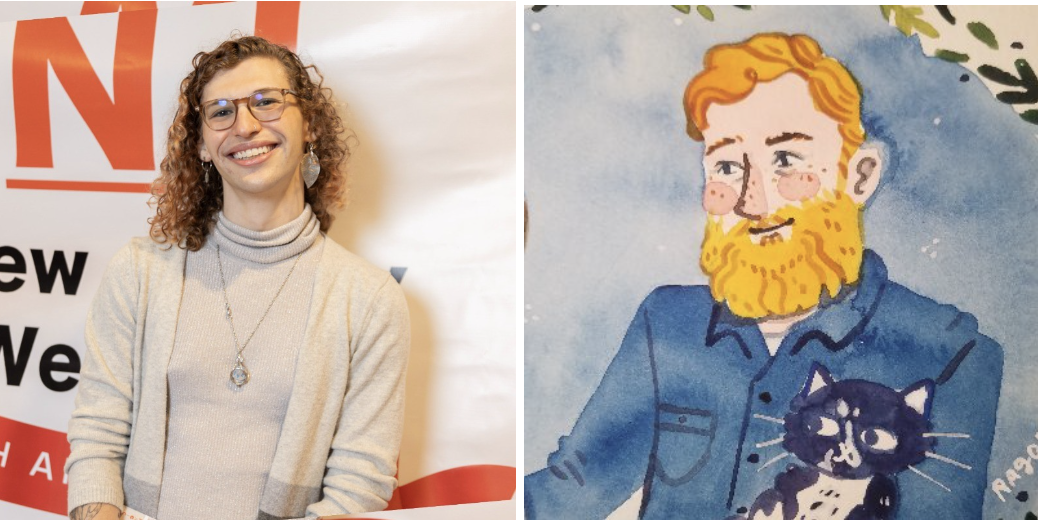
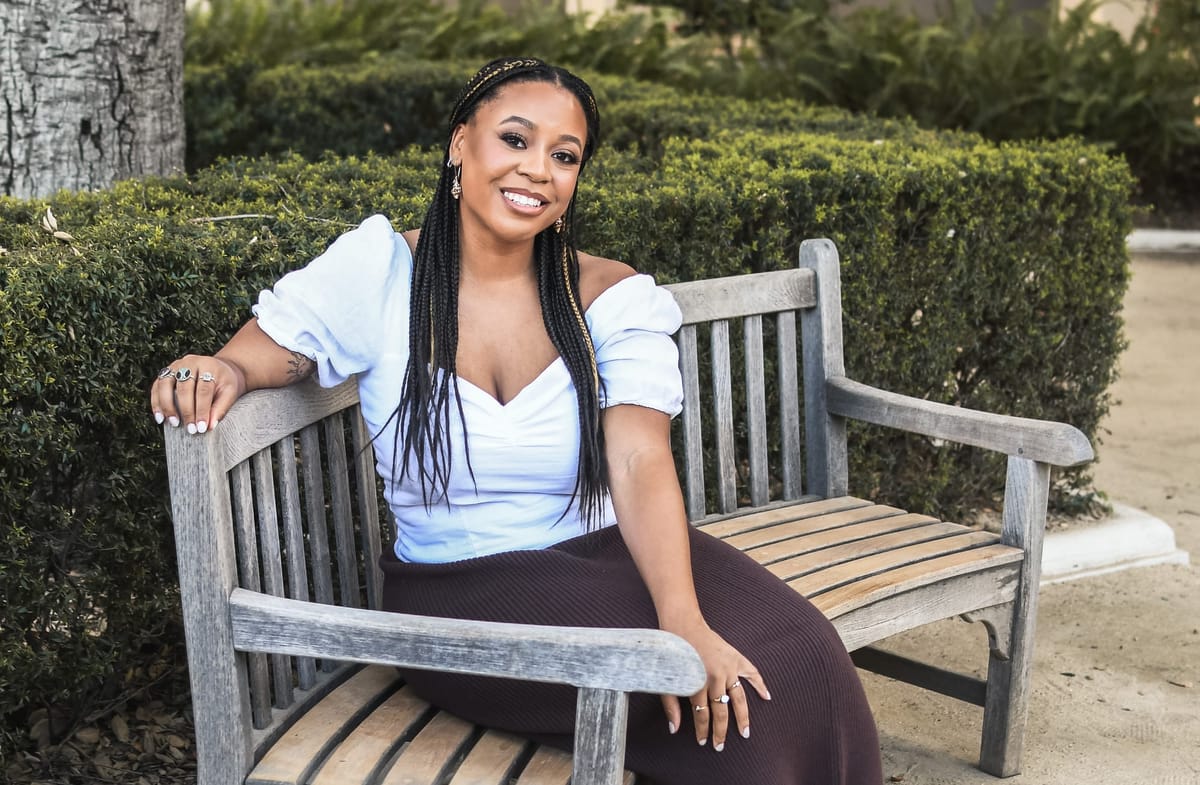
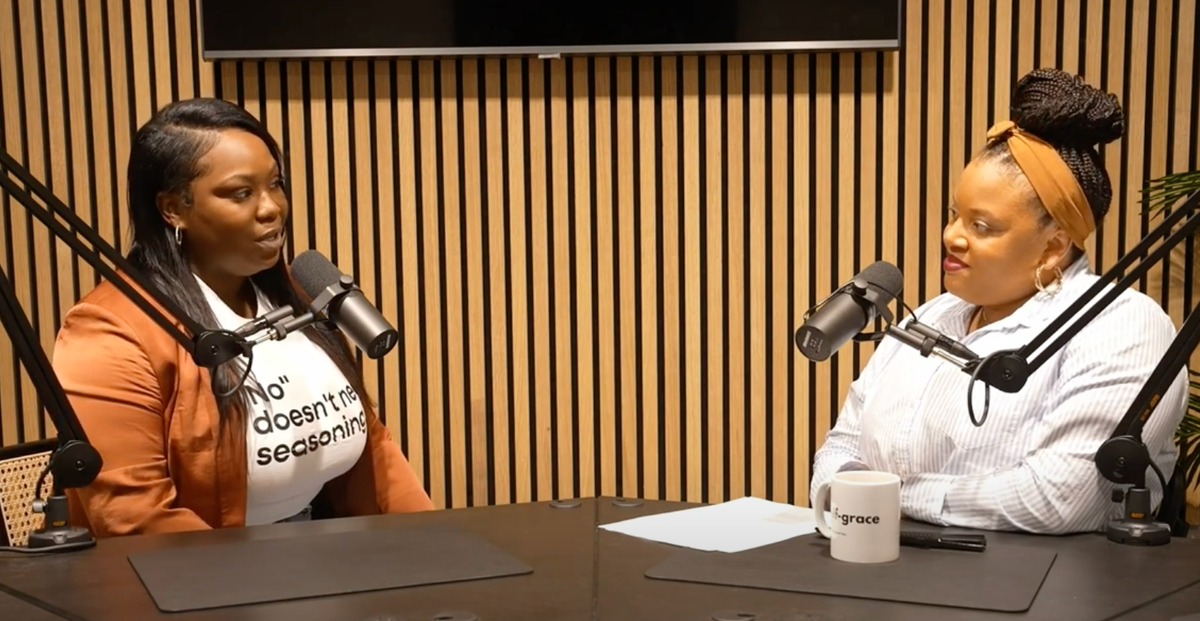
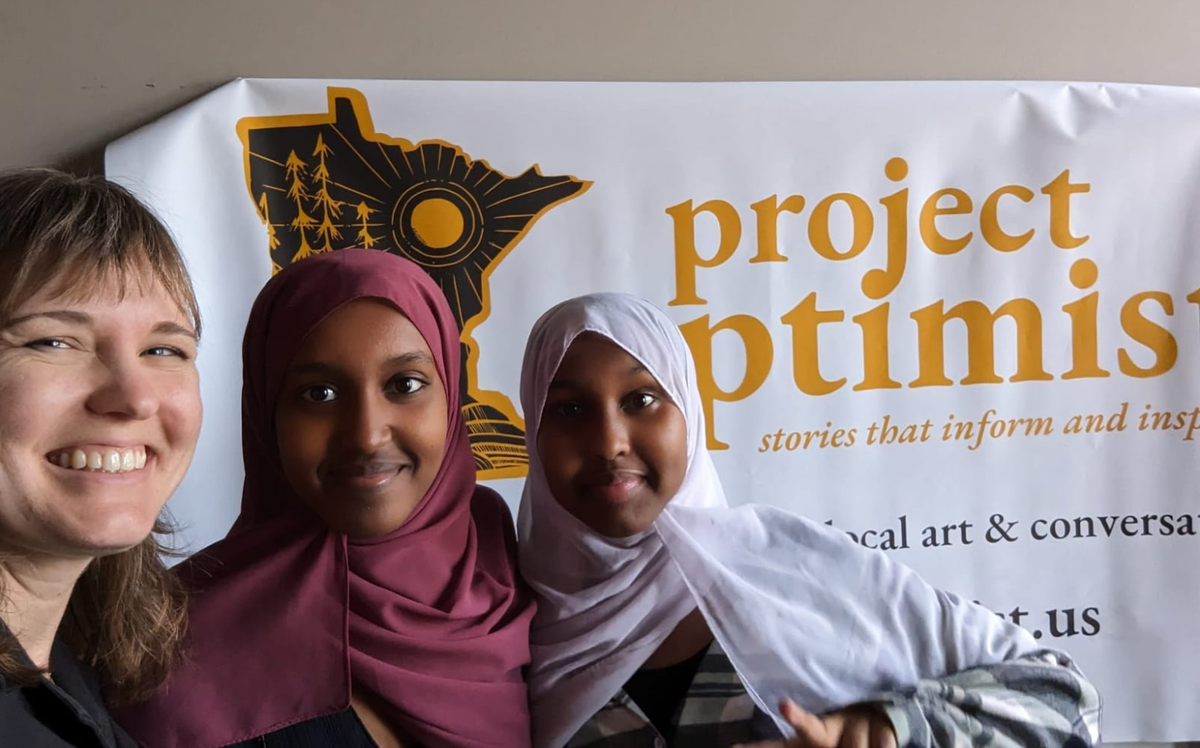
Sign up for our monthly newsletter for ongoing updates, announcements, and resources for newsroom entrepreneurs.